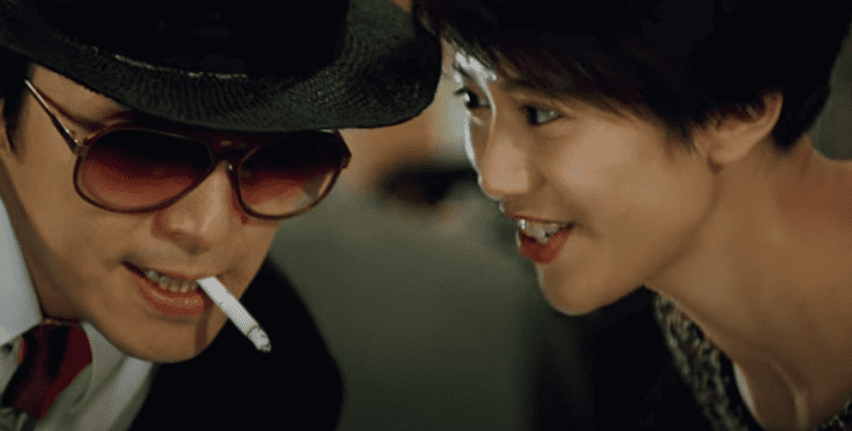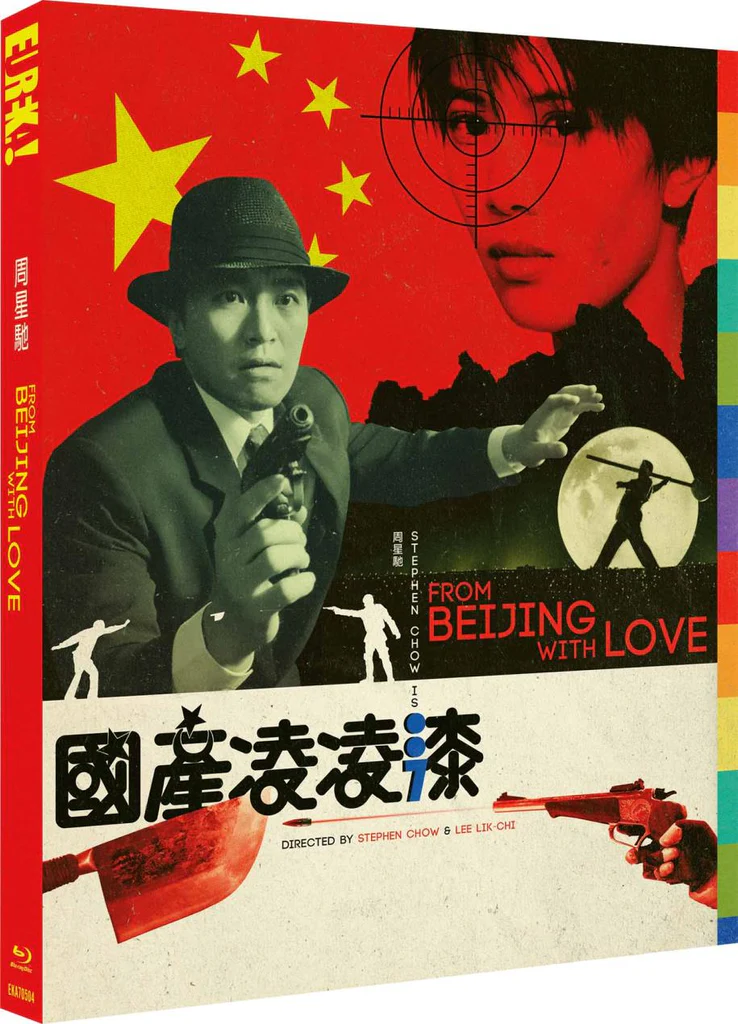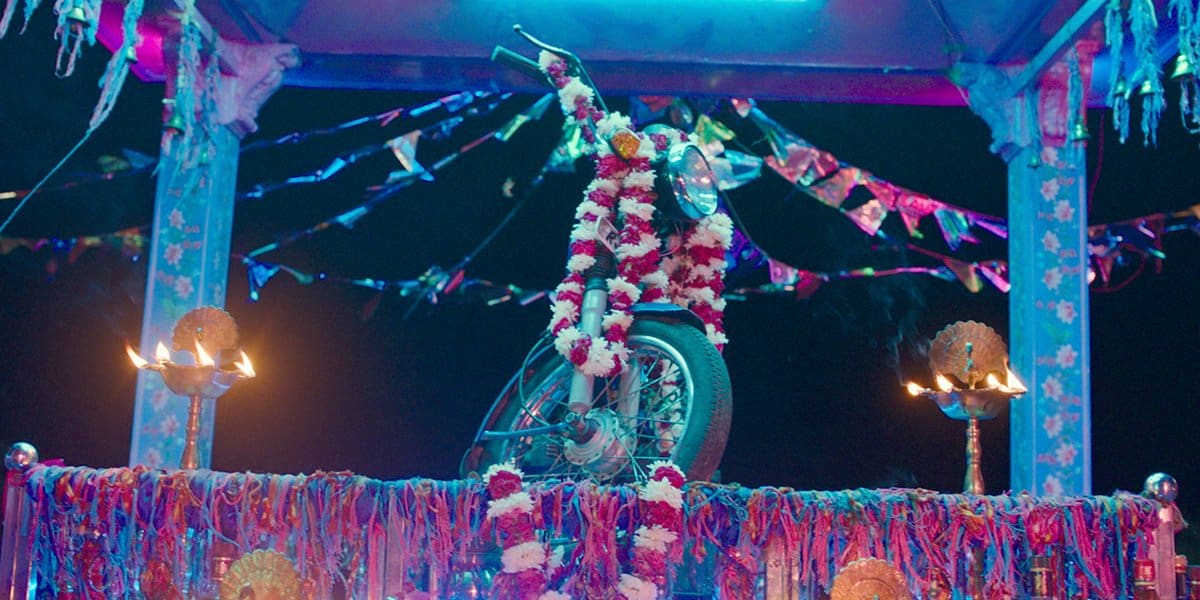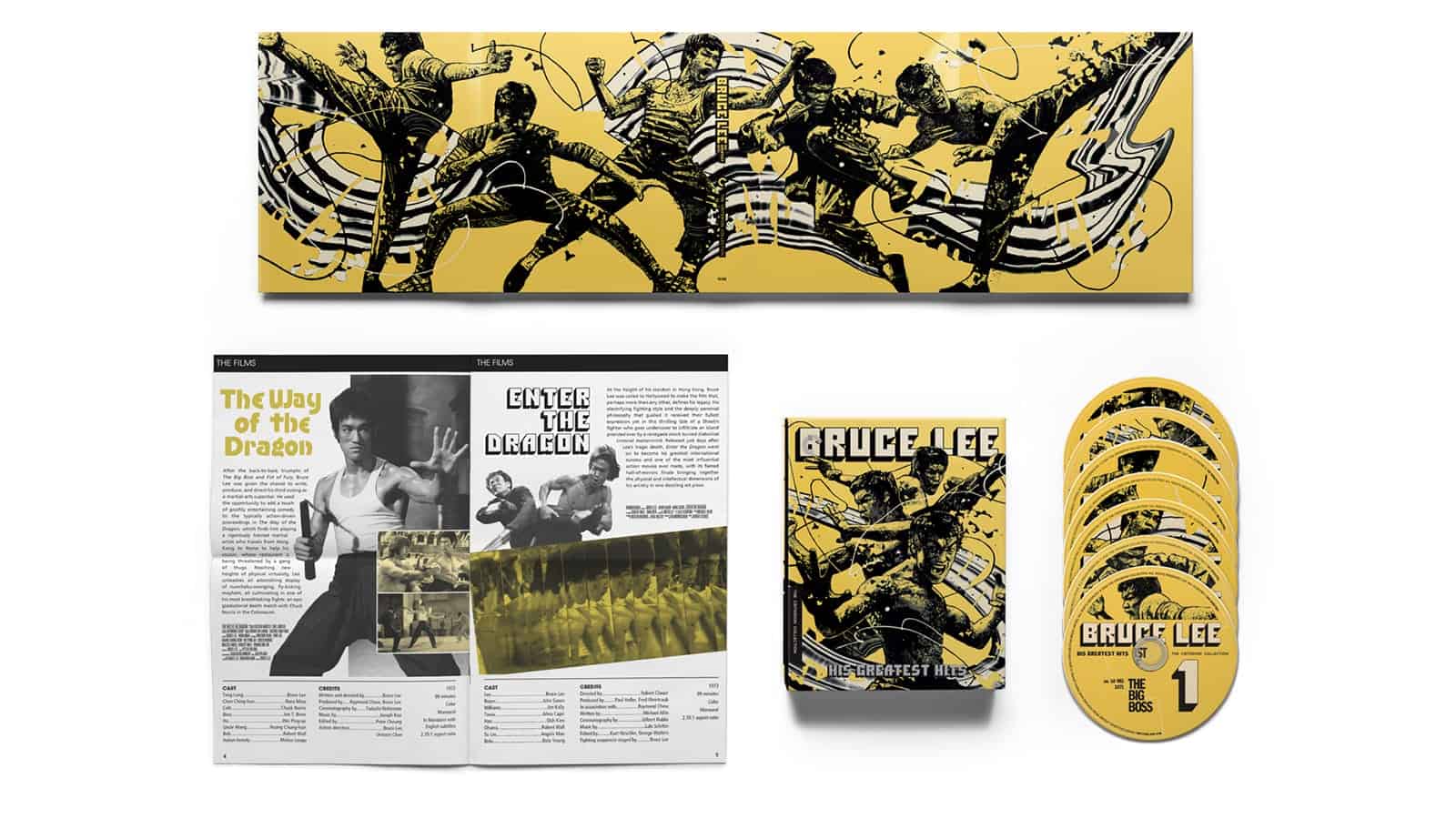Stephen Chow was the closest Hong Kong Comedy ever had to an international star. Breaking out with “Shaolin Soccer” and “Kung Fu Hustle” he suddenly stepped back to focus on direction. Prior to this was a huge back catalogue of his work that apart from sporadic releases was hardly seen in the west. Eureka Entertainment start to rectify that with the upcoming release of “From Beijing with Love” his Bond Spoof from 1994. Comedy however can be a very acquired taste and what makes them roar in Kowloon may not necessarily do so in Kansas. So time to take a trip back to the nineties and experience Stephen Chow in his prime.
The head of a dinosaur is stolen by a man in invincible armor and a golden gun. With numerous agents out of commission Ling Ling Fat (Stephen Chow) is brought in out of the cold after 10 years to investigate. He meets up with Leung-kam (Anita Yuen) who he believes is there to aid him but is in fact working for the villain. Encounters with a mysterious woman (Pauline Chan), a man with metal teeth, and some hometown bank robbers follow. A final confrontation takes place, where loyalty is tested, truth emerges and silliness abounds.
For the most part, this is a very effective spoof of Bond movies with some other cultural references thrown in for good measure. Some are very obvious (Golden Gun, Jaws etc.), some more subtle. Ling Ling Fat being Cantonese for 007 for example. Visual humour also comes in, taking off the Wong Kar-wai style too. Like most scattergun approaches, some jokes land better than others. The firing squad sequence is a highlight and how can you not laugh at the boss giving orders from a video screen hidden in a toilet! With a lot of humour based on wordplay and local references, some of this then gets lost in translation but enough lands to ensure there are genuine laughs to be had. The title credits are an affectionate homage to the classic Maurice Binder titles from the original Bond movies and would be repeated in “Forbidden City Cop ” two years later.
Violence in comedy is an interesting subject, especially in the work of Stephen Chow as an auteur. Slapstick violence is to be expected. Humans are treated like cartoon characters and fly around everywhere. Then on occasion, we get moments that really jar the tone. The jewel heist is a classic example. Starting with the usual silliness, it swiftly switches to the kind of violence that has emotional resonance before jolting back to holiness again. Even experienced watchers of Hong Kong cinema with it's frequent uneveness tonally will be thrown as it feels unnecessary and doesn't add anything other than to set up more gags. It's something that crops up regularly in his self directed work. We also get a very bloody sequence played for laughs as our central duo try to do DIY surgery after Ling Ling Fat is shot.
Stephen Chow usually allows the supporting cast to share in the jokes. Without his usual sidekick in Ng Man-tat, it falls to Anita Yuen to be the central foil as well as love interest. She plays the role for the most part completely straight, reacting to the situations as opposed to joining in. An accomplished comedienne in her own right, it works really well and is a shame that they didn't work more frequently together. Keep your eye out for the regular bunch of actors that are practically a repertory company appearing in nearly all his later work. Pauline Chan as the mystery woman gets a rare non Category III role. She has little to do except appear stunning and rework a certain Madonna outfit in the climax.
As an actor, Stephen Chow is his usual charismatic self. It's a variation of his stock character (normally arrogant upstart redeemed through love and responsibility). He's self assured but this time with a hint of naivety. The usual lack of money is there but with less maliciousness about wealth accumulation. As a director, this is the beginning of him finding his voice, the verbal humor taking more of a back seat to the visual, something that would be fully formed with “Shaolin Soccer”. With co-direction you can never be too sure in how much each party contributes but comparison with Chow's latter solo work does indicate his being the more powerful voice behind the scenes as opposed to Lee Lik-chi.
One element that does date the piece is the subject of official corruption. Whilst it leads to some of the funniest sequences in the film, in a more pro China era it is not something that would play well now in the mainland. Comedy has always satirized institutions and with Hong Kong comedy in particular, the desire for wealth accumulation has always gone hand in hand with corruption. With the handover at this point only a few short years away, the opportunities to take shots at officialdom would soon dissapear.
“From Beijing with Love” is a highly polished work and for most of the running time is consistently funny. It's just the tonal changes that jar, taking us momentarily out of the comic rhythm before throwing us back in without time to digest the momentarily seriousness we've just witnessed. Get past that and there is much to enjoy. This is Hong Kong comedy at it's best, full of of cultural references, slapstick, invention and of course toilet humour that would make any Brit proud. As introductions to the earlier work of Stephen Chow go, it's off to a good start!

















